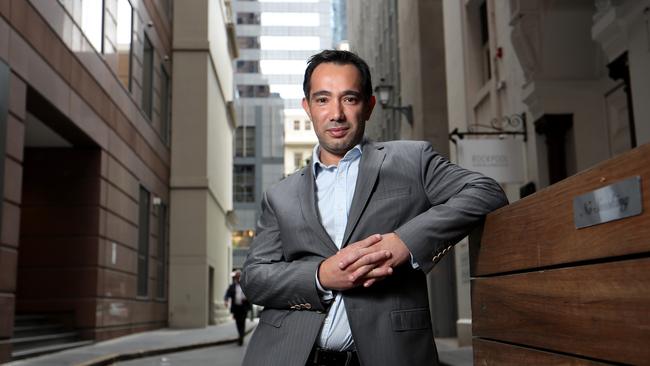Prescient Therapeutics takes new approach to cancer
Prescient Therapeutics says it is set to be the first Australian company to conduct a new “basket” approach to clinical trials.

Cancer drug developer Prescient Therapeutics says it is set to be the first Australian company to conduct a new “basket” approach to clinical trials — a method that fuelled an $US8 billion ($11bn) deal in the US.
The new approach means that rather than look at the effect of one drug on one cancer, the therapy is measured on multiple cancers with the same genetic mutation, not on the location of the tumours. The aim is for the targeted therapy to switch off the mutation.
US company Loxo Oncology, which used this strategy, was bought out earlier this year for $US8bn.
Loxo became a target after posting positive clinical trial results that showed its drug to be highly effective on cancers driven by a single gene mutation, regardless of where in the body the tumours originated.
Prescient chief executive Steven Yatomi-Clarke said Loxo had pioneered the basket approach.
“Instead of thinking of a particular type of cancer, such as breast or liver, they turned the whole thing on its head and said they had a particular drug that addresses this mutation, we don’t care where it is, if you have the mutation you are on the study,” he said.
“They went from instead of having to do a phase one, two and three study, to just a single study to approval in four years.
“Then they got bought out.”
Mr Yatomi-Clarke said the Australian company believed it could take a similar approach with one of its drug candidates, PTX-100, which targets a mutation present in cancers such as myeloma, lymphoma, gastric and pancreatic. “Not many companies have this path available to them,” he said.
“We will be the first in Australia taking this approach and one of a few in the world doing this type of study.
“From a single study if you can demonstrate efficacy above a certain hurdle rate in those cancers, the regulators will green-light you.”
The Melbourne-based minnow recently raised $9m from US and Australian investors to conduct clinical trials for PTX-100 in the US, and for the first time in Australia.
The funds will also be used to progress its lead drug candidate PTX-200, which has trials underway in breast cancer, leukaemia and ovarian cancer.
“PTX-200 is a nice drug and the trials are under way, but as the PTX-100 trial commences, I think the focus will shift rapidly towards that because it is genuinely unique,” he said.
“There is no other drug in the world that can do what we think it can do.
“It will draw a lot of attention, because people are thinking is this another Loxo in the making,” he said.
“No doubt there are people watching us in the US.”
Mr Yatomi-Clarke said the basket approach changed the game for a company like Prescient.
He said it opened up the potential for a junior company to have a drug approved and then, with a concentrated sales force, sell it for several hundred thousands dollars per patient per year in a number of concentrated centres.
“It’s good to have that option as it gives you leverage in any (partnership) discussions you are having,” he said.



To join the conversation, please log in. Don't have an account? Register
Join the conversation, you are commenting as Logout